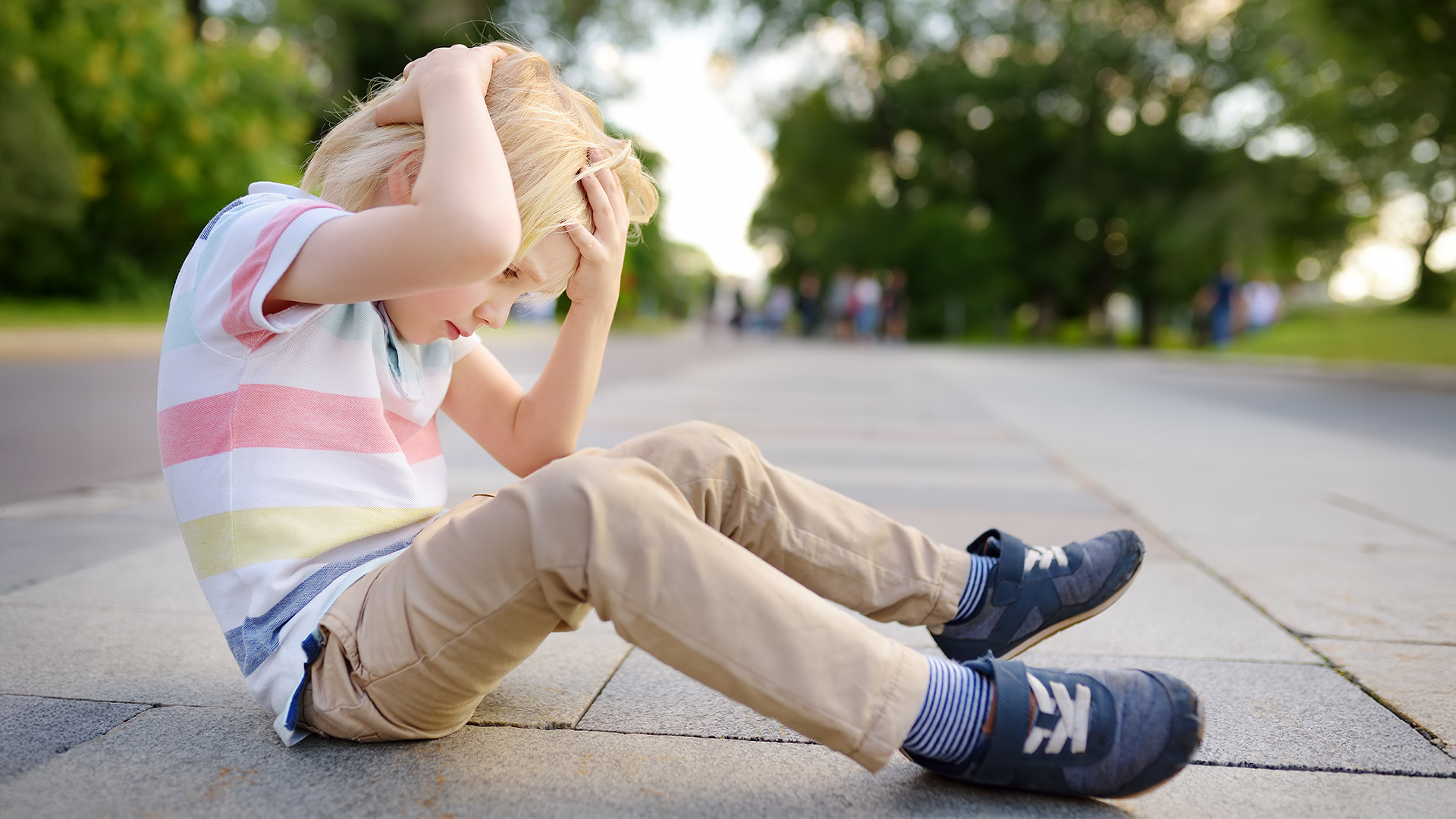
Concussion in Kids – What You Need to Know
Concussions are common injuries in children and adolescents. Whether it’s from sports, playground accidents, or everyday slips and falls, kids are at risk for a concussion just about anywhere they go! Recognizing the signs of concussion early is key to protecting their developing brains.
What is a Concussion?
A concussion is a type of mild traumatic brain injury (TBI) caused by a bump, blow, or jolt to the head, or even a hit to the body that causes the head to move rapidly back and forth. This sudden movement can cause the brain to bounce or twist inside the skull, triggering neurometabolic changes in the brain.
While concussions are usually not life-threatening, they can have serious effects- especially in children. The good news is these symptoms are treatable and temporary as long as kids get the proper care.
Concussion Signs and Symptoms to Watch for in Kids
Concussion symptoms in kids can vary widely and may not appear immediately. Some signs may show up right after the injury, while others can develop over hours or days, such as when kids initially return to school after their injury. Some key things to look out for include:
- Physical symptoms: Headache, nausea, vomiting, dizziness, blurry vision, or balance problems.
- Cognitive symptoms: Confusion, trouble concentrating, memory problems, or feeling “foggy.”
- Emotional symptoms: Irritability, mood swings, sadness, or anxiety.
- Sleep disturbances: Sleeping more or less than usual, or trouble falling asleep.
But what if your child is unable to describe their symptoms? In that case, signs like excessive crying, changes in play or eating habits, or lack of interest in favorite activities may be a clue that something’s wrong after a kid hits their head.
What to Do After a Head Injury in Children
If you suspect your child has sustained a concussion, it’s important to take it seriously. Remove them from play or activity immediately and seek medical attention. Even if symptoms seem mild, a healthcare provider trained in concussion management should evaluate your child to confirm the diagnosis and rule out more serious injuries. It is always better to stay on the safe side.
Never let a child return to play (sports, recreational activities, etc.) the same day as the injury. Returning too soon without guidance from a medical professional can increase the risk of a second concussion or even a more severe brain injury.
Concussion Prevention Tips in Kids
While not all concussions can be prevented, there are steps you can take to reduce the risk:
- Ensure your child wears helmets for biking, skateboarding, snow sports, contact sports, etc.
- Choose a helmet that fits your child snugly and sits level on their head- not too loose or too tight. Replace the helmet right away if there are cracks or if it has been in a hard fall, even if it looks fine on the outside.
- Teach proper techniques and rules in sports.
- Make your home safer for young children by using safety gates, securing furniture, and installing window guards if needed.
- Encourage open conversations so kids report head injuries instead of hiding them.
Concussion Recovery and Return to Normal Activities
Most kids recover from concussions within a few weeks, but healing times can vary. One of the most important factors in a timely recovery from concussion in kids is early access to specialized care. Horizon Neuropsychological Service’s Concussion Clinic aims to see children as soon as possible after their injury to get them back on track in their daily lives in a timely and safe manner. You can contact 720-242-7533 to schedule an appointment with our concussion specialist.
Moreover, it’s essential to maintain open communication with teachers and coaches so they can support your child’s recovery at school and during extracurricular activities. Be sure to share the treatment plan/recommendations provided by your child’s doctor with teachers and coaches to ensure everyone is on the same page.


